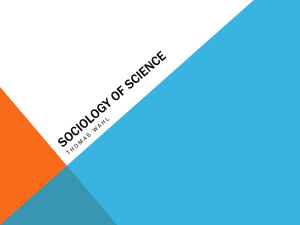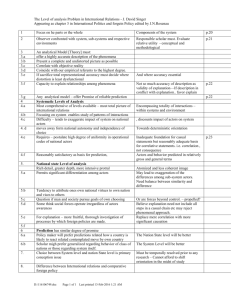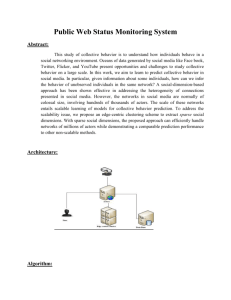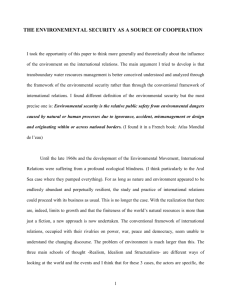ATTESTATION DE PRESENCE A UNE CONFERENCE
advertisement
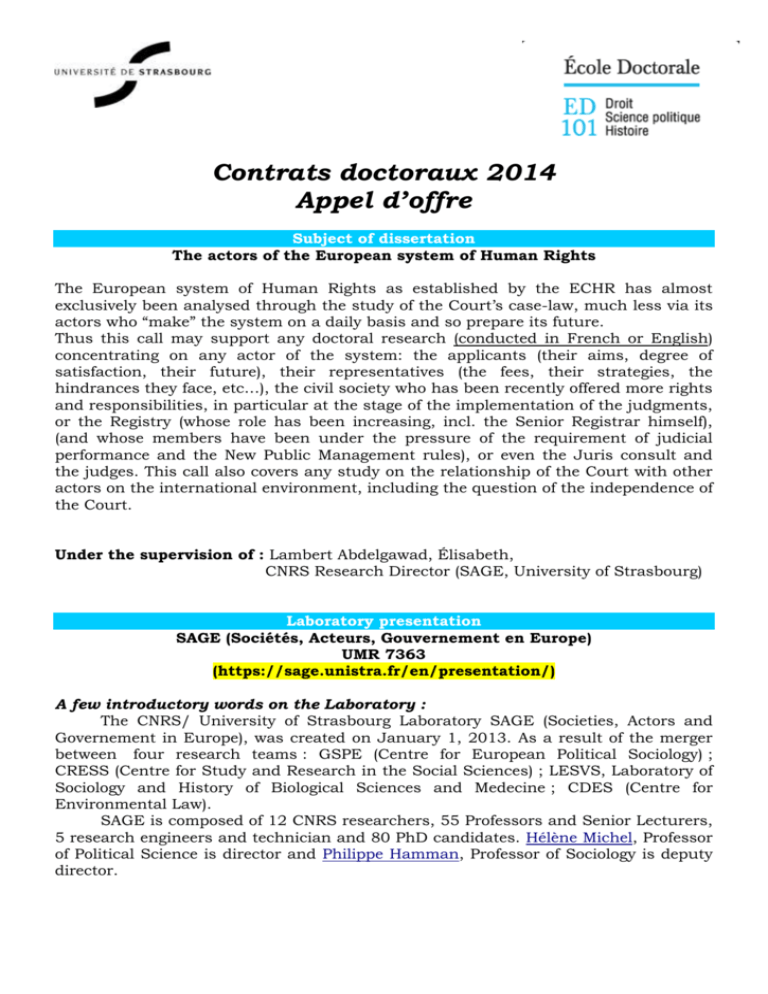
Contrats doctoraux 2014 Appel d’offre Subject of dissertation The actors of the European system of Human Rights The European system of Human Rights as established by the ECHR has almost exclusively been analysed through the study of the Court’s case-law, much less via its actors who “make” the system on a daily basis and so prepare its future. Thus this call may support any doctoral research (conducted in French or English) concentrating on any actor of the system: the applicants (their aims, degree of satisfaction, their future), their representatives (the fees, their strategies, the hindrances they face, etc…), the civil society who has been recently offered more rights and responsibilities, in particular at the stage of the implementation of the judgments, or the Registry (whose role has been increasing, incl. the Senior Registrar himself), (and whose members have been under the pressure of the requirement of judicial performance and the New Public Management rules), or even the Juris consult and the judges. This call also covers any study on the relationship of the Court with other actors on the international environment, including the question of the independence of the Court. Under the supervision of : Lambert Abdelgawad, Élisabeth, CNRS Research Director (SAGE, University of Strasbourg) Laboratory presentation SAGE (Sociétés, Acteurs, Gouvernement en Europe) UMR 7363 (https://sage.unistra.fr/en/presentation/) A few introductory words on the Laboratory : The CNRS/ University of Strasbourg Laboratory SAGE (Societies, Actors and Governement in Europe), was created on January 1, 2013. As a result of the merger between four research teams : GSPE (Centre for European Political Sociology) ; CRESS (Centre for Study and Research in the Social Sciences) ; LESVS, Laboratory of Sociology and History of Biological Sciences and Medecine ; CDES (Centre for Environmental Law). SAGE is composed of 12 CNRS researchers, 55 Professors and Senior Lecturers, 5 research engineers and technician and 80 PhD candidates. Hélène Michel, Professor of Political Science is director and Philippe Hamman, Professor of Sociology is deputy director. Contrats doctoraux 2014 Appel d’offre Research conducted by SAGE : This pluridisciplinary team brings together researchers working on transnationalisation processes, and in particular European construction as a response to globalisation, as well as the transformations and political and social dynamics linked to these processes. In this perspective, emphasis is placed on the sociology of transnational actors who elaborate and implement new norms and policies having effects on new social issues (environment, health, ageing, social vulnerabilities, culture, urban areas, etc.) and on the territorial dimensions of these dynamics. Research in SAGE places an emphasis on empirical fieldwork as a means to test theoretically constructed hypotheses. Methodology seeks to triangulate data through the mobilisation of quantitative and qualitative social science methodology (archives, ethnographic observation, statistical analysis) allowing for an integrated pluridisciplinarity around common research themes. SAGE is a laboratory centred on the social sciences of politics with an original approach to important social and political issues such as health, environmental law and policy, urban sustainable development, social and cultural policies, the internationalisation and circulations of elites, the political sociology of Europe and social movements. Research is structured around 6 internal work groups, working in close collaboration and on a project oriented basis. Work Groups Work group 1 – Elite Transnationalization and Reconfiguration of Political Spaces in Europe Work group 2 – Environment, health, science and society Work group 3 – The transformation of collective mobilizations in Europe Work group 4 – Social policies, familial and occupational dynamics Work group 5 – Transformations in the markets of symbolic goods: culture, media, education Work group 6 – Territorial dynamics, cities and mobilities Concerned Work Group: Work Group 3: Work group 3 – The transformation of collective mobilizations in Europe Coordinators: Jean-Philippe Heurtin and Elisabeth Lambert Abdelgawad Permanent members: Ioana Cirstocea (CR, CNRS), Dorota Dakowska (MCF), Christian de Montlibert (PR emeritus), Magdalena Hadjiisky (MCF), JeanFrançois Havard (MCF), Jean-Philippe Heurtin (PR), Solenne Jouanneau (MCF), Elisabeth Lambert Abdelgawad (DR CNRS), Stéphane Latté (MCF), Valérie Lozac’h (MCF), François Steudler (PR emeritus), Gaëtan Cliquennois (CR). Contrats doctoraux 2014 Appel d’offre Work group 3 examines new mobilization patterns in an innovative fashion, bringing together scholars of law, political science, sociology, history and ethnology. Very few sociological and legal studies on the uses of law have been underpinned by a comparative and European approach, even though the circulation of actors, techniques and repertoires of action has resulted in profound transformations in collective action. While until the mid 1990s the “crisis of critique” was characterized by a decreasing number of vocations for activism, politics and union membership, a widespread sentiment of powerlessness among ordinary citizens and correlatively a retreat to the private sphere, collective protest has experienced a resurgence since the mid 1990s. More recently, there have been waves of mass protest and major demonstrations in countries such as Spain, Portugal and Greece. The forms of protest have arguably changed. Until the 1980s, collective mobilizations took place mainly at the national level. Since then, the economic, social and then financial crisis has resulted in the reconfiguration of collective action forms, with greater emphasis on international arenas and a more diversified repertoires of action – from traditional types of protest, such as the worker’s movements, characterized by strength in numbers, to the more expert forms of intervention in scientific and legal arenas. European construction and the transfer of responsibility for a number of public problems to the EU level have contributed to the reconfiguration of public space of collective action. Centrifugal and centripetal forces appear to coexist: the European space favors the dispersion and the multiplication of actors and lines of action, as well as tendencies toward the recentering and the circulation of the same actors between national normative spaces, between the national and the European space, and between the various component parts of the European and international spaces. This circulation can be observed for politicians, trade unionists and members of associations, but among legal professionals or other holders of specialized knowledge. The increasing complexity of norms and the specialization of the actors also contributes to this redeployment of mobilization of resources. Actors choose to focus on specific themes, narrow down – and professionalize – the scope of their activities – be it protest, the diffusion of certain forms of knowledge or intentional conceptions or legal action. The internationalization – and more particularly the Europeanization – of collective mobilizations does not only indicate the increasing importance of transnational networks involved in shaping “European public opinion” (and to a lesser extent, an international one) exemplified by the European demonstrations against the war in Iraq. It also points to the ongoing search for spokespersons and “respondents” to replace increasingly helpless national governments in making the voices of protesters heard and “acting” in their name to exert Contrats doctoraux 2014 Appel d’offre influence on increasingly international actors. The increasingly permeable boundaries between different forms of political mobilization and the growing recourse to expertise and legal action have led to the importation of managerial techniques in the political game and in public policy. These new developments have given largely original and unprecedented contours to the “European protest society”.
